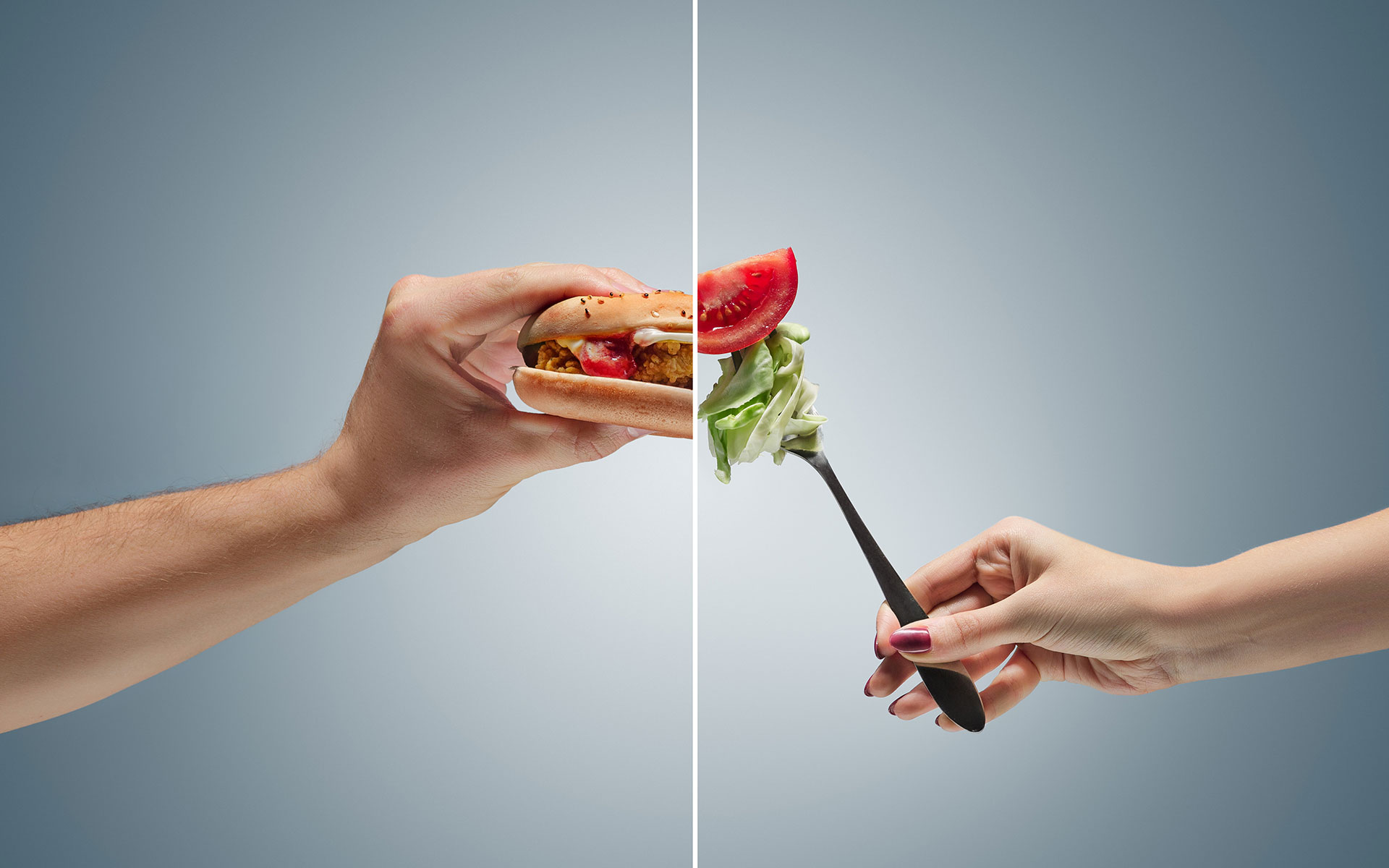
How Your Nutritional Habit Affects Hair Loss

Hair loss , whose real name is alopecia, is a very common condition. There are many factors that cause alopecia , that is, hair loss. These;
- genetic factors
- Hormone imbalances
- hypothyroidism
- Tight collection of hair
- Psychological traumas
- Infection
- chemotherapy drugs
- nutrient deficiencies
Hair loss caused by nutrient deficiencies can be prevented by small changes in eating habits.
Micronutrient Deficiencies that Cause Hair Loss
Hair consists of two basic structures; the visible hair shaft and the hair follicle hidden under the skin. Hair grows from hair follicles. A healthy hair grows by 0.35 mm per day. The scalp sheds about 100 hairs a day, and this usually increases during washing and combing. Hair follicles are extremely active and sensitive. In fact, hair follicle cells are among the fastest dividing cells in your body, so it's not surprising that nutrient deficiencies can negatively affect hair growth .
Micronutrients that negatively affect hair health in their deficiency are as follows;
- Iron Deficiency
Iron deficiency is the most common nutritional deficiency in the world, resulting in hair loss often. The condition is related to a type of hair loss known as telogen effluvium (TE), which is a type of hair loss characterized by a disruption in the normal hair growth cycle. This causes excessive hair loss and hair loss .
Researchers are still investigating how iron deficiency causes hair loss, but on the other hand, it is observed that it disrupts hair growth by diverting iron stores in the hair follicle to other parts of the body. Some studies have shown that people with hair loss tend to have lower levels of iron in their blood and hair compared to people without hair loss.
- Vitamin D Deficiency
Vitamin D plays an important role in hair growth and the health of hair follicles. Studies have shown that vitamin D levels are lower in people with hair loss, including female pattern hair loss and an autoimmune skin disease called alopecia areata. Studies have also shown that taking a vitamin D supplement promotes hair regrowth in some people with vitamin D-deficiency hair loss.
- Zinc Deficiency
Zinc is a mineral that plays important roles in immune function, protein synthesis, cellular division and more. It is also necessary for hair follicle function and helps protect against shrinkage and slow growth of the hair follicle. It also helps to support hair follicle healing.
Research that zinc deficiency can cause hair loss shows that people with certain causes of hair loss tend to have lower zinc levels than people without hair loss. These reasons are:
- alopecia areata
- male pattern hair loss
- female pattern hair loss
- telogen effluvium
Besides iron, vitamin D and zinc deficiencies, more nutrient deficiencies such as copper, biotin, B12, folate and riboflavin can also cause hair loss. If you think you are experiencing hair loss due to nutrient deficiency, it would be beneficial to consult a healthcare professional. They may recommend having a blood test to assess your micronutrient levels and correct any deficiencies.
Calorie and Protein Restrictions
The cells that make up the hair bulb, the hair-producing part of the hair follicle, have a high turnover rate, meaning new cells grow and replace old cells quickly. This is why your hair follicles are very susceptible to protein and calorie deficiencies, which they need constant nourishment to grow and function properly. Calorie restriction affects the energy supply to the hair follicle, which can cause hair loss.
Studies have shown that very low-calorie diets can cause hair loss in some people. Your hair needs amino acids, which are the building blocks of protein, to grow properly, so a diet without enough protein can lead to hair growth abnormalities such as hair loss and thin, brittle hair. Very low calorie intake and protein restriction can negatively affect health in many other ways. That's why it's so important to nourish your body with enough calories and add protein-rich foods to your diet to ensure your body gets the nutrients it needs.